Horror is a vast genre, full of terrors so widely varied it seems as if the possibilities are endless. There’s no right or wrong way to do horror. Sometimes the terror is rooted in the relentless and violent urges of mankind, and sometimes the bone-chilling fear comes from creatures out in space, where no one can hear you scream. But an undeniable backbone of the horror genre is when fantasy gives way to frights.
Related: The Scariest Horror Books We're Most Looking Forward to in 2021
Ghosts, witches, curses, monsters, and mirror-worlds—all things you’d be just as likely to find in your favorite fantasy reads as you would be to find in tales of horror. But the lines between fantasy and horror aren’t so clearly marked, especially with the gray area of “dark fantasy” thrown into the mix. So when does fantasy become horror? And does it even matter?
For starters, beyond what writers, producers, and publishers commercially market as “horror,” the label itself is hard to broadly pin down, as horror is such a deeply personal experience. What may read as horror to some might not induce the same skin-crawling reaction in others. Preying on morality, societal anxieties, and instinct, it’s impossible for horror to tick all the boxes for all audiences. Every viewer or reader has their own psyche and moral baseline to grapple with, and as such, a child-eating clown might be terrifying to some and silly to others.
Related: 17 Award-Winning Horror Books You Need to Read Now
On the other hand, it’s important to look at horror’s origins for this discussion. Horror got its start through oral tradition, with stories of vampires, spirits, werewolves and the like being used as both cautionary tales and rationalizations of the unexplained. When horror had its shift to a literary foundation, the tales took on a more religious ilk.
In this, horror’s beginnings are entirely similar to that of fantasy’s beginnings. In fact, many of the stories begun in oral tradition that we would lump into the fantasy category—Cinderella, Sleeping Beauty, even Little Red Riding Hood—have their fair share of versions full of disfiguration, non-consensual affairs, and slaughter, which we often attribute to horror. As such, a large slice of the horror genre pie is inextricably linked to fantasy.
Related: Horror Books For Fans of Rose Szabo's 'What Big Teeth'
Some might say that fantasy is a story which lacks macabre themes, yet no one would hesitate to call Game of Thrones a fantasy. While many today might also say that horror is a genre which inspires consumers to scream, cower, or otherwise engage in their fight-or-flight response, that’s another oversimplification. The genre has been defined by literary historian J. A. Cuddon as that which “shocks, or even frightens the reader, or perhaps induces a feeling of repulsion or loathing.”
Though many of horror’s fans have a preference for content that is terrifying, many who both love and hate the genre ironically overlook the fact that, in order to be considered horror, a work need only be horrifying. Disturbing, unsettling, and repulsive pieces—those of a more psychological and emotional nature, rather than those rooted in physical tortures and pains—have just as much place in the genre as slashers, creature features, and ghost stories.
Related: Why Empathy in Horror Makes for Better (and Scarier) Movies
Consider films like Get Out. The movie obviously contains physical repercussions, but the gut-churning horror of it all is psychological. These ideas are also found in similar social horror books like Penance by Kanae Minato, The Fever by Megan Abbot, The Changeling by Victor LaValle, and Now You’re One of Us by Asa Nonami.
Then, of course, you have dark fantasy movies like Pan’s Labyrinth. Books like Coraline by Neil Gaiman, Prince of Thorns by Mark Lawrence, and Heroes Die by Matthew Woodring Stover. What is it that separates these books from those in the horror genre?
Related: Victor LaValle: Where to Begin with the Award-Winning Horror Author
No matter how deeply you scour the internet, library, or academic forums, you’re never going to find an unanimous or even widely agreed upon answer to this vexing question. Some are happy to shrug and say that dark fantasy and horror are one and the same. Some say it’s merely a matter of perspective—whether the novel or film puts the emphasis more on the adventure or the tension. Others argue it’s all in the world building—horror is all about injecting the unnatural into the mundane, while fantasy and its dark subgenre are all about a world inherently separate from the mundane from the get-go. There are some who even go so far as to assert that in horror, protagonists are victims, while fantasy protagonists are heroes. Of all points made, this is the one I disagree with the least, from all angles.
But the distinction is widely regarded as a matter of opinion. Still, I think one important factor aside from content and structure of a work should be acknowledged in the discussion: baggage. Horror comes burdened with loads of baggage that its dark fantasy counterpart doesn’t seem to carry. Horror films are certainly looked down upon and seen as a jumble of gore, jump scares, and cheap effects—a long history of some major Oscar snubs speak to the problem of this view pervading the industry just as much as the consumers. But horror novels too are often seen as shallow vehicles that delight in violence and exploitation. There are certainly a number of works on the page and screen that succumb to these pitfalls, but to critique such things side by side with fantasy works seems a bit like turning a blind eye to the baggage of that particular genre. Nevertheless, while there’s always going to be an overlap, horror and dark fantasy labels appeal to different audiences.
Related: These Bewitching Folk Horror Books Will Haunt Your Dreams
So does the distinction between horror and fantasy really matter? It does and it doesn’t. Do I think that narrowing down a genre to small distinctions is useful to readers? Sure. Do I feel like these arbitrary associations can be harmful to the horror genre? I do. Authors and the like should be able to lean into whichever genre they favor, with plenty of subversion and overlap as they please. But with plenty of thoughtful, earth-shattering works of horror out there, the label of dark fantasy shouldn’t be used to cast horror aside like an ugly, worn out toy.
If you ask me, celebrating dark fantasy and horror hand-in-hand as amorphous, versatile works—which have their fair share of mutual problems—can only help both genres grow for the better.
If you’re looking for more great reads that blur the line between dark fantasy and horror, check out the books below:
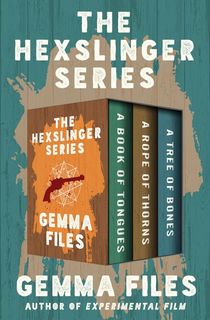
The Hexslinger Series
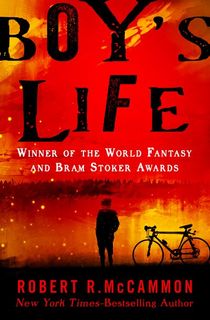
Boy's Life
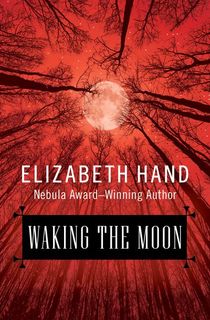
Waking the Moon
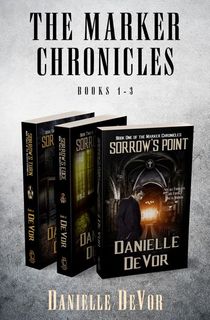
The Marker Chronicles: Books 1–3
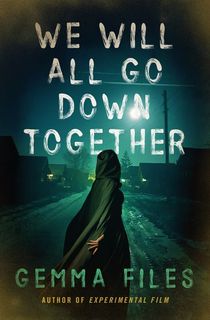
We Will All Go Down Together
Featured photo: Edilson Borges / Unsplash
